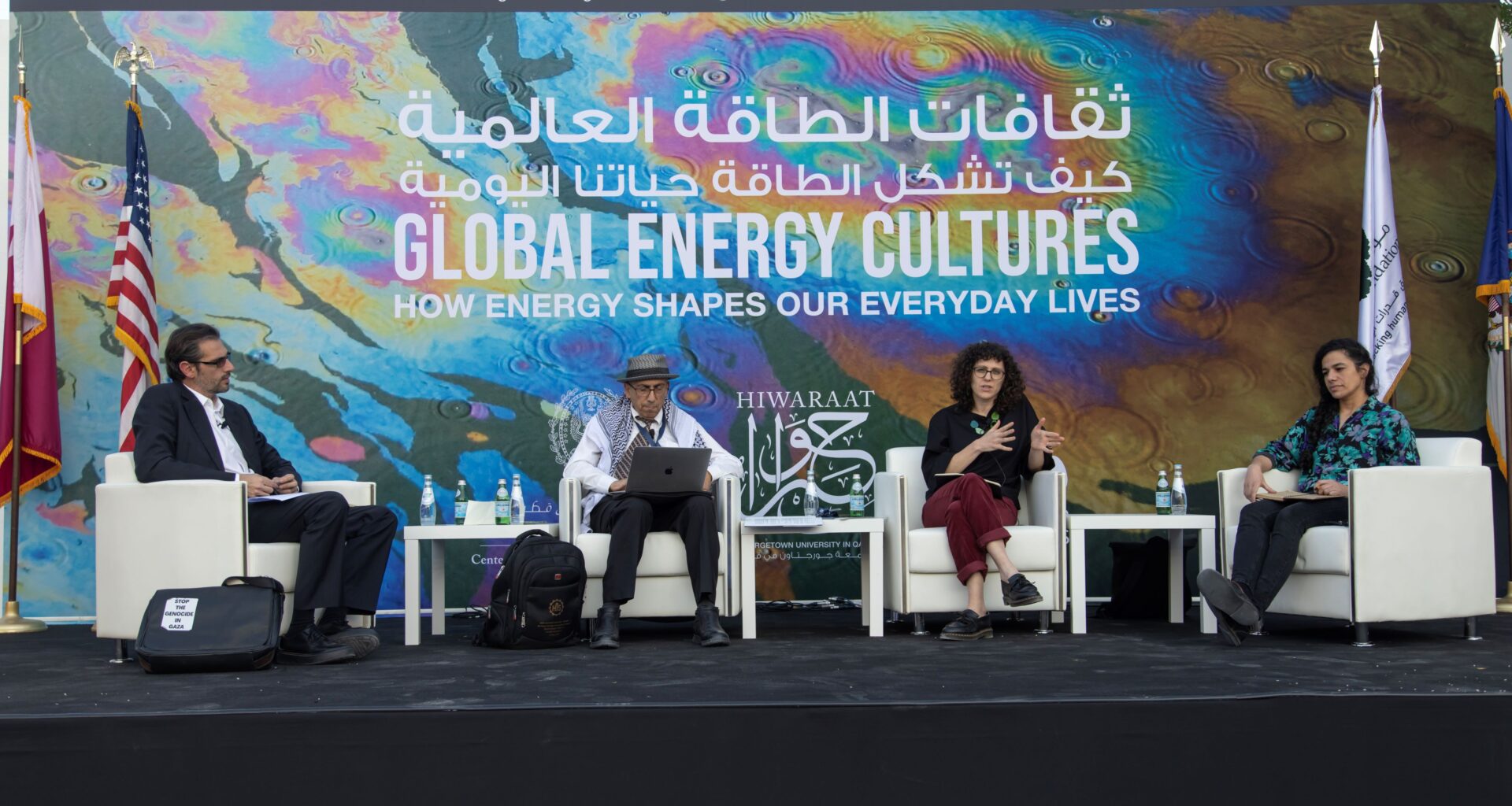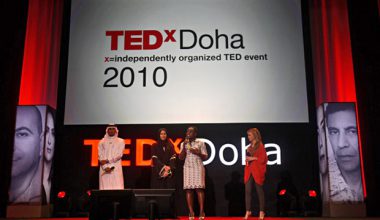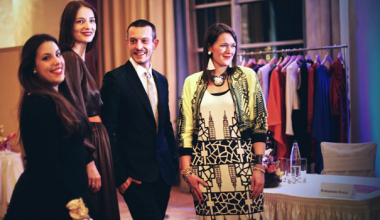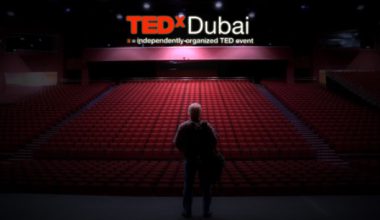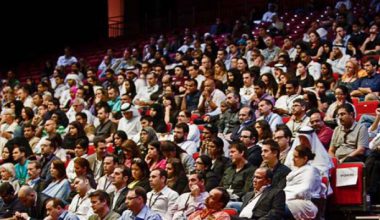The opulent halls of Msheireb Museums in Doha, Qatar, pulsed with an unusual energy on the 9th of December. It wasn't the vibrant chatter of tourists or the hushed reverence of art admirers, but something more intellectual, more electrifying – the palpable hum of ideas sparked by "Global Energy Cultures." This two-day forum, a collaboration between Georgetown University in Qatar and Msheireb Museums, transcended the confines of a typical academic conference to weave a tapestry of scholarly discussions, artistic expressions, and personal stories, all revolving around the ever-present force of energy.
Dr. Safwan Masri, Dean of GU-Q, set the ambitious tone in his opening remarks: "We envisioned Doha as a crucible for global energy studies, where diverse voices could ignite conversations that shift the focus away from the traditional North Atlantic narrative." And ignite they did. Panels buzzed with lively exchanges, each thread of the energy tapestry intricately explored. Architecture became a canvas, as one session pondered its potential to shape our day-to-day relationships with energy, like the urban development in AlUla in Saudi Arabia, where urban design takes on a social and cultural approach.
Dr. Muna Dajani's chilling quote from another panel resonated, echoing the forum's broader thematic scope: "We are not just living in the Anthropocene; we are the Anthropocene." This recognition of humanity's profound impact on the planet's energy dynamics permeated the discussions, urging us to move beyond technological solutions and consider the ethical and cultural implications of our choices.
Yet, "Global Energy Cultures" refused to be confined to the realm of just academic discourse. Art became its vibrant language, offering alternative perspectives on the human-energy entanglement. The first artist-in-residence at GU-Q, Victor Ehikhamenor's haunting artwork, For Those Who Slept in the Dark with Identifiable Ghosts, mourned the silent anguish of energy deprivation.
In stark contrast, the pulsating rhythm of the "Energy on Screen" performance sonified global temperature data, a musical alarm clock jolting us to the urgent reality of climate change. Visualizations of rising temperatures danced across the screen, their colors morphing from cool blues to fiery reds, while the music swelled and dipped, mimicking the Earth's increasingly erratic thermal heartbeat.
Offering a unique perspective on contemporary geopolitics, the closing plenary featured regional experts considering the long-term impacts of both weaponizing access to energy and the human and environmental costs of destroying energy infrastructure in Gaza. The panel, featuring Dr. Sami Hermez, Northwestern Qatar, Dr. Noura Alkhalili, Radboud Universiteit, Dr. Muna Dajani, London School of Economics, and Dr. Mazin Qumsiyeh, Palestine Natural History Museum, revealed the historical ties between energy and power dynamics across the world. Zahra Babar, Associate Director of Research at CIRS (Center for International and Regional Studies), aptly captured the forum's essence: "This wasn't just a conference; it was a transformative collaboration." The Msheireb heritage houses, steeped in their own energy narratives, became the perfect backdrop for these dialogues.
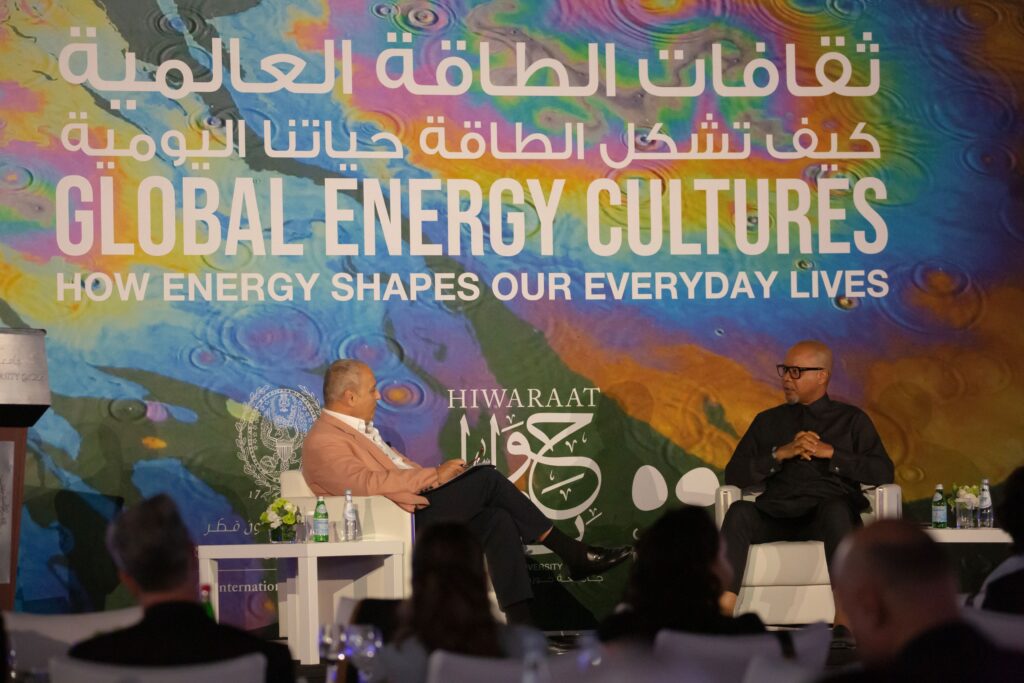
Beyond the Walls of Msheireb: Extending the Dialogue
While the artistic expressions and captivating discussions at "Global Energy Cultures" resonated deeply, the forum also left us with some crucial takeaways that will continue to guide our engagement with energy, both individually and collectively. Here are some of the key points that emerged:
1. Decentering the Narrative: From the North Atlantic to the Global Stage:
- "Global Energy Cultures" shattered the conventional mold of energy studies, which often focuses on the North Atlantic as the central hub. By weaving in diverse voices from the Global South, indigenous communities, and marginalized groups, the forum challenged this dominant narrative and highlighted the need for a more inclusive and nuanced understanding of energy dynamics. This shift of focus acknowledges the unique complexities and challenges faced by regions outside the traditional narrative, allowing for a richer and more equitable dialogue about energy futures.
2. Beyond Technology: The Human and Cultural Dimensions of Energy:
- While technological advancements are key in tackling energy challenges, the forum reminded us that solutions cannot be purely technical. "Global Energy Cultures" emphasized the importance of considering the social, cultural, and political dimensions of energy. This includes recognizing the historical legacies of energy colonialism, understanding the impact of energy infrastructures on local communities, and acknowledging the cultural values and practices that shape our relationship with energy. By considering these human and cultural aspects, we can develop more just and sustainable energy solutions that resonate with the diverse needs and priorities of different communities.
3. The Power of Interdisciplinarity: Weaving a Tapestry of Knowledge:
- "Global Energy Cultures" celebrated the transformative power of interdisciplinarity. Bringing together scholars, artists, filmmakers, musicians, and practitioners from diverse fields sparked unexpected connections and broadened perspectives. This cross-pollination of knowledge opened new avenues for understanding energy through art, music, literature, and even architecture. By embracing interdisciplinarity, we can move beyond siloed approaches and generate more holistic and innovative solutions to the complex challenges we face in the energy sector.
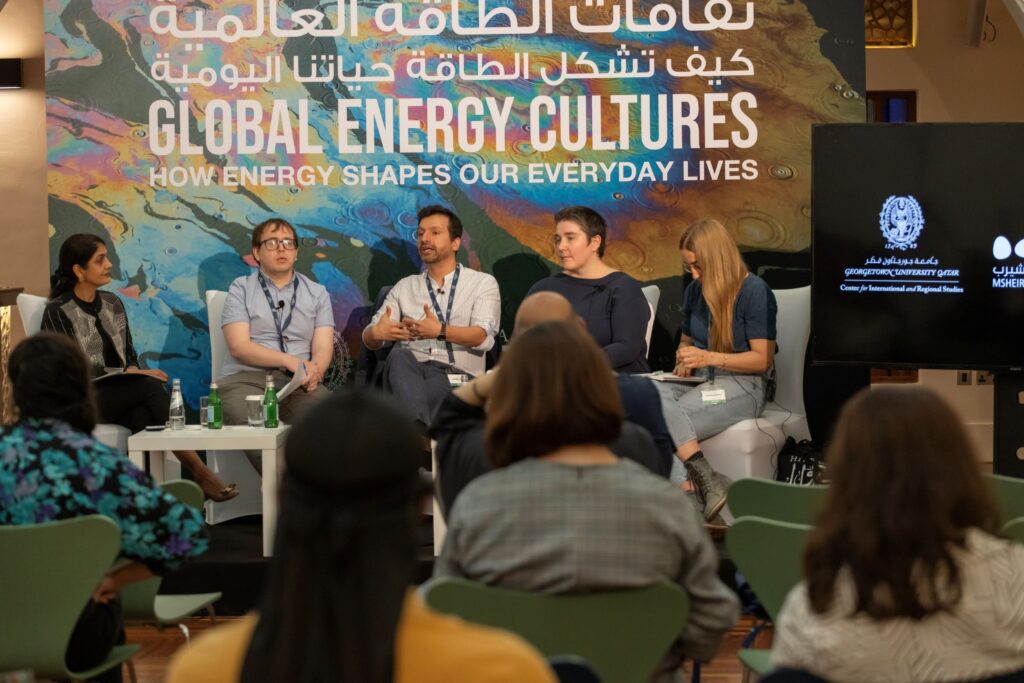
4. Reimagining our Relationship with Energy: From Control to Collaboration:
- The forum challenged the traditional anthropocentric view of humans as sole masters of energy, urging us to re-evaluate our relationship with this powerful force. Discussions explored concepts like energy democracy, where communities have a say in energy decisions that impact their lives. The forum also highlighted the potential of renewable energy sources to foster greater collaboration with nature, recognizing our interdependence with the environment rather than aiming for absolute control over energy systems.
5. Collective Action: Weaving a Brighter Future Thread by Thread:
- Ultimately, "Global Energy Cultures" left us with a sense of hope and responsibility. By recognizing the interconnectedness of our energy choices and their impact on the planet and each other, the forum spurred a call for collective action. By weaving together the threads of knowledge, understanding, and collaboration, we can work towards a brighter future where everyone has access to sustainable and equitable energy solutions.
These are just some of the key takeaways from the forum, each serving as a thread in the ongoing tapestry of energy conversations. As we move forward, let us carry these lessons with us, inspiring each other to co-create a future where energy empowers rather than divides, and where the tapestry of human-energy relationships is woven with threads of justice, sustainability, and respect for the planet we share.

